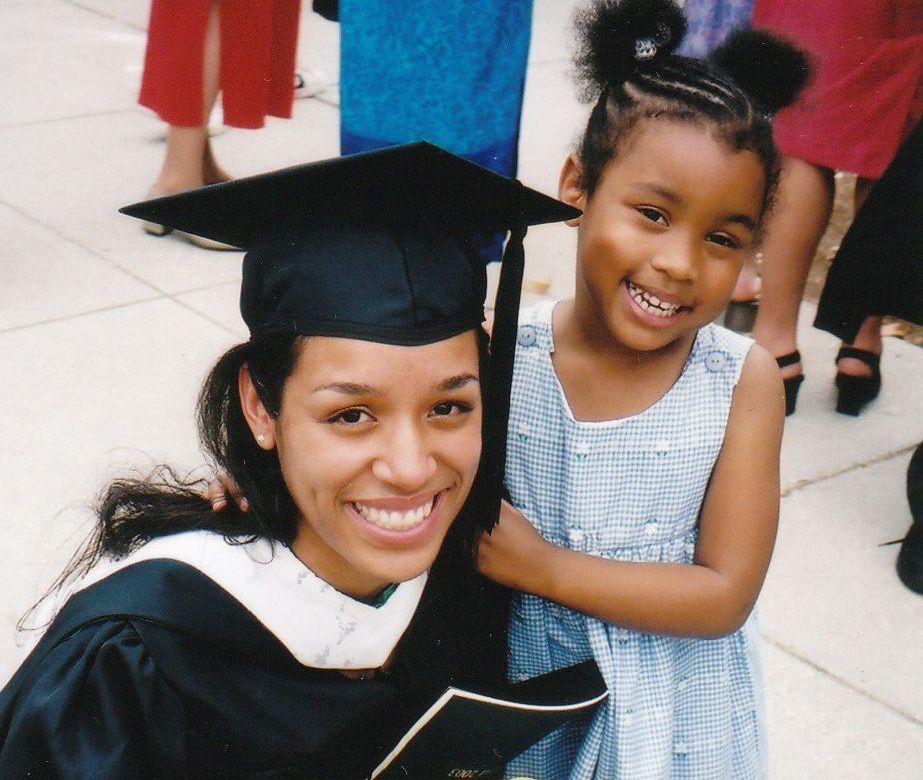
Nicole Lynn Lewis understands the power of a good education.
It’s why she founded Generation Hope, a Washington, D.C.-based nonprofit that has been working on behalf of student parents since March 2010. Lewis and her 40-plus team of employees have worked directly with hundreds of matriculating families in both the D.C. area and New Orleans, and helped thousands more through its broader collaborative programs.
But before all of that, she was a teen parent – a member of a group that traditionally faces a steep uphill climb in numerous regards, including access to educational opportunities. Research shows that fewer than 2% of teen mothers graduate college before age 30, and there are roughly 750,000 teen pregnancies in the U.S. each year.
Having that secondary degree makes a difference. Those who graduate college earn salaries that are 84% higher than those who don’t, and they are 50% more likely to get a job at all.
Then, there are the stigmas these parents also contend with – assumptions from others that dismiss them as incompetent or unintelligent. But the situation is “more complex than we like to admit,” Lewis says. “There are so many systemic issues connected to it: race, gender, all the things we don’t want to talk about.”
Generation Hope has what it calls a “two-generation model” to tear down some of these roadblocks. It has scholarships for tuition assistance and emergency funding needs. It also offers mentorship programs, educational workshops and community engagement initiatives to foster connectivity and further individual growth. To help the children, it provides home visitation programs and coordinate vital screenings.
Beyond that, Generation Hope also engages in institutional training and political advocacy efforts, in hopes of creating systems that are more welcoming for student parents and their families. What it comes down to for Lewis and her team is that “all families deserve opportunity.”
Lewis adds: “Every time we have a scholar walk across the graduation stage, it’s a huge win.”
For Her, It’s Personal
Lewis knows their struggles all too well. Mere months shy of her 1998 high school graduation, her world was changed by her own pregnancy. “I had a stack of college acceptance letters on one side of the desk, and a positive test on the other,” she recalls – and the implications terrified her. “I didn’t know how the two could coexist. How to go to college as a young mother.”
Without a blueprint to follow, or role models to look to, Lewis found herself adrift. She left her parents’ house and entered into a period of instability, with nights spent on friend’s couches or in her car. All the while, her baby continued to grow inside of her.
But “I kept that goal of going to college.” When she was eight months pregnant and living in a Motel 6, she accepted a spot at the College of William & Mary; less than three months after giving birth, she began going to classes. But it didn’t get easier. Rather, her college experience was “extremely intimidating.” To get by, Lewis says she challenged herself to simply “survive the next 24 hours” while weathering lengthy commutes, severely limited funds and more.
And it paid off – in 2003, she earned her bachelor’s in English, graduating with high honors. Her daughter even walked across the commencement stage with her.
Afterwards, Lewis took a public relations position at a Washington, D.C. insurance company. It was a comparatively luxurious life – she was even flown on work trips in a corporate jet. “It was very clear how much my life, and my daughter’s life, was transformed by a college degree.” But getting one was “so hard. I didn’t want it to be that hard for others.”
That acknowledgement, as well as a shift away from the corporate world into nonprofit work, led to the founding of Generation Hope all those years ago. And it’s grown since – it’s even launching a national conference, Hope 2024, next March.
But even with all she has to show for her efforts – not to mention that hard-earned degree – there are still barriers standing in Lewis’ way. “As a Black woman leading a nonprofit organization, there are so little resources directed our way,” Lewis says. A recent study found that over 86% of Black nonprofit leaders report significant problems securing donors.
More than anything, Lewis laments the good works that can’t be done without adequate support. “It’s important to name leaders of color, Black women of color, who continue to be left out of funding opportunities that would really bolster our visions.”
Because if there’s one thing Lewis gets, it’s the difference some assistance can make. ◼



